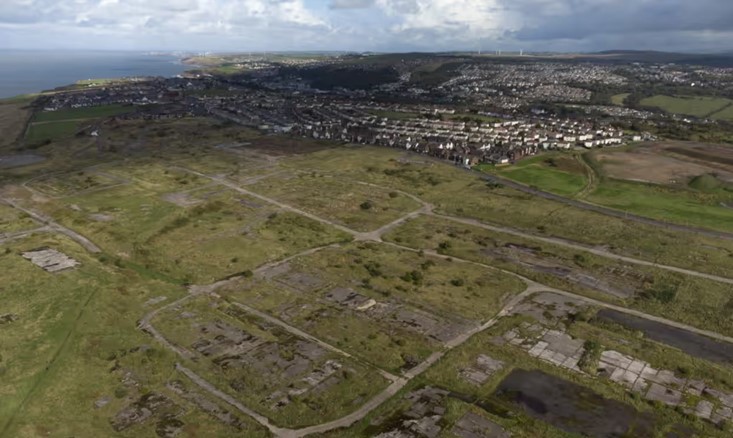
High Court Stops Plans for UK's First Deep Coalmine in 30 Years
In a major decision, the High Court has blocked the proposed development of the UK's first new deep coalmine in three decades, located in Whitehaven, Cumbria. The ruling, delivered on Friday by Justice Holgate, marks what environmental groups are hailing as a significant win for climate action.
The court's decision follows legal challenges from environmental activists, who argued that the project would contribute heavily to fossil fuel emissions. The ruling sets a new precedent in the wake of a recent Supreme Court case involving oil drilling at Horse Hill in Surrey. That case established that the environmental impact of burning fossil fuels, such as coal, oil, and gas, must be considered when approving new projects. The Whitehaven coalmine case is the first ruling on fossil fuel development since that decision.
Justice Holgate sided with Friends of the Earth, finding that Michael Gove, the former Secretary of State for Levelling Up, acted unlawfully by accepting West Cumbria Mining's (WCM) claim that the project would be "net zero" in emissions. The company's reliance on offsetting emissions through international carbon credits was deemed incompatible with UK climate policies, which do not permit the use of overseas credits to meet domestic carbon reduction targets under the Climate Change Act 2008.
In an unexpected turn earlier this year, the Labour government withdrew its backing for the Whitehaven mine. Angela Rayner, the Secretary of State for Housing, Communities, and Local Government, acknowledged that there was a legal error in the initial approval granted in December 2022. The government informed the court that it no longer supported the mine's planning permission, but the developer, WCM, continued to defend the project.
Friends of the Earth argued that WCM had not fully accounted for the emissions generated by the burning of coal extracted from the mine. Forecasts estimated the total emissions from the mine's coal could exceed 220 million tonnes of CO2 over its lifetime — more than half of the UK's total emissions in 2022.
Niall Toru, a senior lawyer for Friends of the Earth, celebrated the outcome: "This is a monumental victory for our environment. The UK does not need another coal mine, and approving it would have undermined our global reputation on climate change." He added that the ruling could have implications beyond the UK, as similar challenges to fossil fuel projects are being fought internationally.
The ruling requires Rayner to reconsider the project, taking its full environmental impact into account. This could involve reopening the planning inquiry, gathering new evidence, or requiring WCM to submit a revised application.
Doug Parr, Greenpeace UK's chief scientist, stated: "The era of coalmining should be behind us. Now, it's up to the government to ensure communities don't face the choice between high-carbon jobs or unemployment."
West Cumbria Mining declined to comment on the court's decision.
The article was updated on September 13, 2024, to clarify that the mine would have been the UK's first new deep coalmine in 30 years, not the first coalmine of any kind.